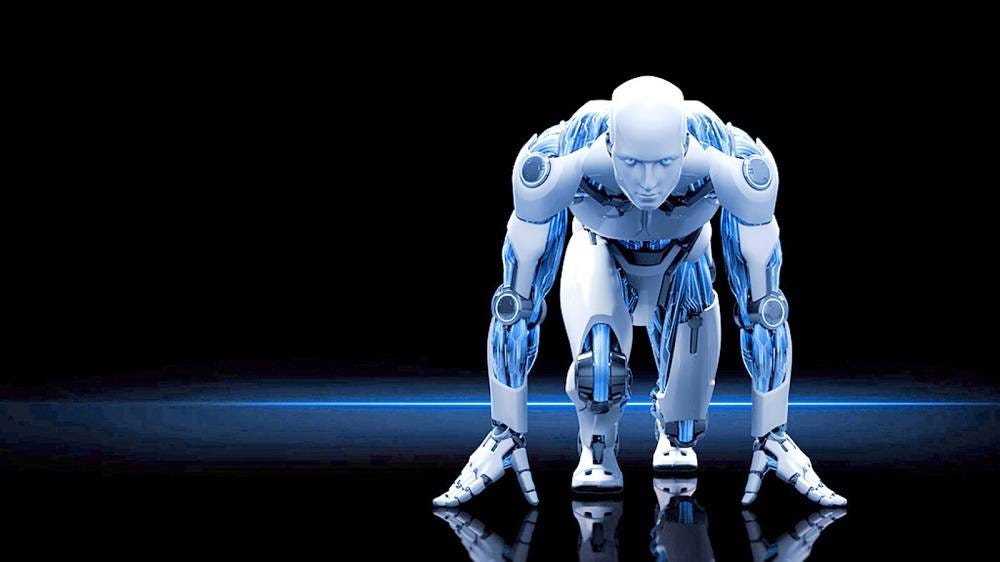Robots, Basic Income and Star Trek
Click to read the full story: Robots, Basic Income and Star Trek

“The economics of the future are somewhat different. You see, money doesn’t exist in the 24th century… The acquisition of wealth is no longer the driving force in our lives. We work to better ourselves, and the rest of humanity. Actually, we’re rather like yourself and Dr. Cochrane.”
— Jean Luc Picard to Lily Sloane, Star Trek: First Contact
What’s money for anyway? It’s a means to acquire goods and services which everyone has to work for to acquire and in some cases, steal and even kill for. It’s something everyone worries about. So the idea of a society without money is kind of hard to swallow unless everyone is well-provided for. At least in Star Trek they have replicators, the great-great grandchildren of today’s 3D printers.
In the current state of things, many humans in the near future would have to worry about it even more. You can’t have money if you can’t work. You can’t work if your only skill can be done by one or two robots. Twelve thousand workers would have to find some other non-progressive factory in China as Foxconn just replaced them with machines. Machines don’t whine about work conditions. Machines don’t need to get paid and machines can work 24/7 without breaks. Foxconn just saved a lot of money in the long run and stands to earn a lot more. If other companies follow their example, there’s going to be a lot of unemployed people in China and the rest of the world. What these companies may have overlooked in the long run would be the shortage of people to buy whatever they make, as workers from various industries would lack the purchasing power because they don’t have jobs.
But what if money will no longer be a concern yet still be part of the economy? What if everyone can have just enough money to feed the family, pay the bills, go on trips and buy stuff? What if everyone, even lazy deadbeats can have money without having to work? Everyone who chooses to can still work and earn extra to fulfill some goal or calling in life. Products will still be made; services will still be given, and the economy could keep on rolling. Crime will be minimized as no one will need to steal to survive. You can live without having to work, but if you want a car, you’ll have to be employed. In short, that’s the concept of Basic income and the father of the internet, Tim Berners Lee thinks it’s a wonderful idea.
The robotics age will catch up to us inevitably. We will soon live in the world of Osamu Tezuka’s Metropolis or Astroboy where robots will be a part of the citizenry. One has to wonder how the world of Will Smith’s I-Robot works with robots doing all of the menial work. But before that, less advanced robots, but still smart enough to wait tables, deliver pizza, flip burgers, carry packages and luggage and drive anywhere will be taking over many human jobs leaving many humans without work. Unless China has a solution to this, they’re in a real pickle. But if they get behind the idea of basic income and have enough money to make it happen, China could easily become the most powerful country in the world.

“I think a basic income is one of the ways of addressing massive global inequality… We should all look at the fact that a very small number of people have ended up controlling a huge amount of income…”
— Tim Berners Lee, Economist podcast
It’s weird to think that a man can work in the fields his whole life and not get past his country’s borders, not get a car or even have dinner at a fancy restaurant while others can work on a few minutes at a desk, code an idea which turns out to be valuable and instantly have the power to purchase a Lamborghini, wear a fancy suit, live in a mansion and tour the whole of Europe. Others meanwhile live in luxury without having to lift a finger, their value dependent upon the speculation of others. It’s unfair, but that’s life. It’s about to get less fair when robots begin delivering pizzas and other packages.
It doesn’t have to be unfair unless something as radical as basic income gets adopted. It’s not a new idea. Some places tried and failed, but Switzerland is thinking of trying it out by giving every able-bodied person 1,650 US dollars. The Netherlands, Finland and Canada will follow suit in 2017. Perhaps as a real solution to the upcoming robotic economy. No one has to live in squalor. The money will keep on flowing. People who want more can get their job’s worth plus their basic stipend. There will be less crime, and less will be spent on social welfare.
The hurdle? Population, politics and probably a few more things unconsidered. But for some countries like the above mentioned with small populations and some money on hand and a sustainable source, it’s quite possible. How I would like to live in that country, get a car, a fancy laptop, continue writing and better myself and not having to worry about the family’s survival. It’s one step closer to that puzzling Star Trek economy.
The post Robots, Basic Income and Star Trek appeared first on Movie TV Tech Geeks News By: Marius Manuella
